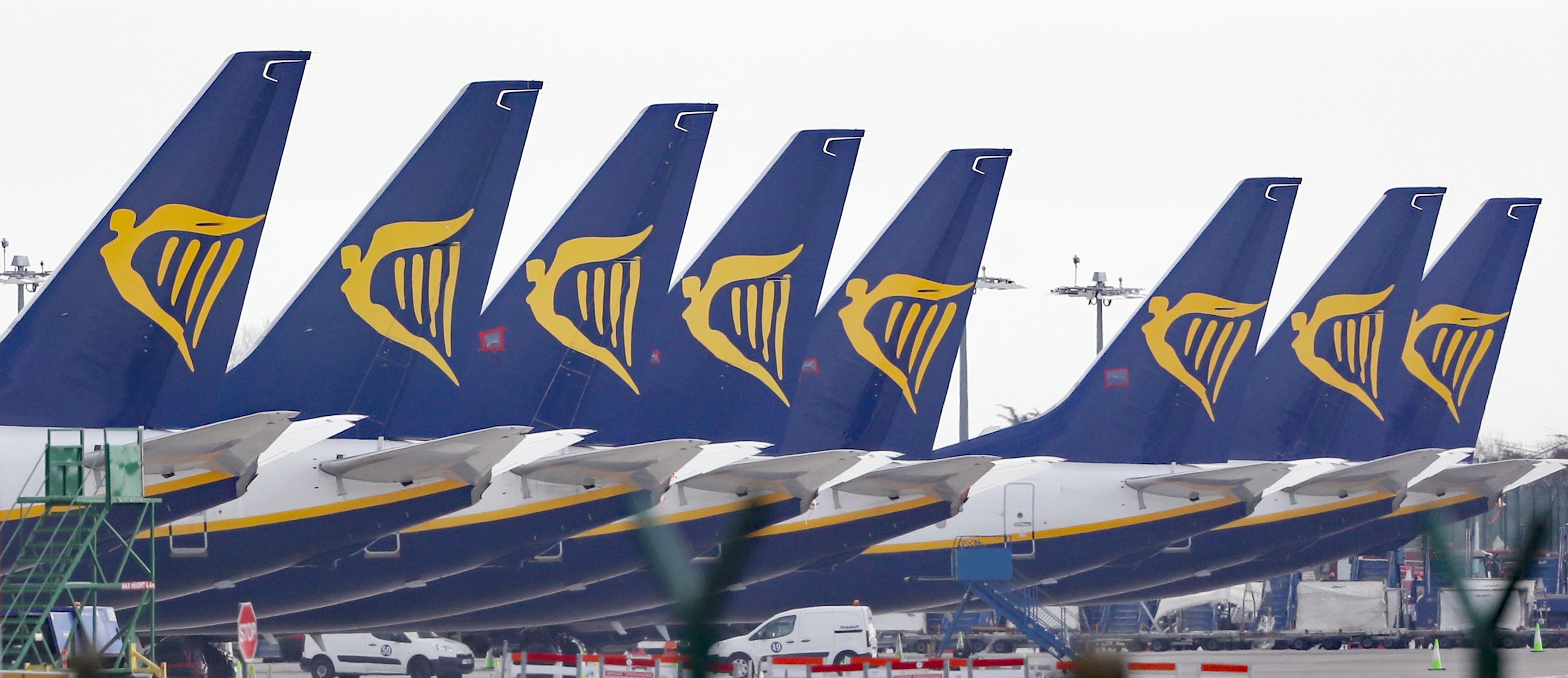Ryanair to delist from London Stock Exchange next month over Brexit
Rule changes and high costs have been cited for the move, leaving the Irish airline listed solely on the Euronext Dublin exchange.

Your support helps us to tell the story
From reproductive rights to climate change to Big Tech, The Independent is on the ground when the story is developing. Whether it's investigating the financials of Elon Musk's pro-Trump PAC or producing our latest documentary, 'The A Word', which shines a light on the American women fighting for reproductive rights, we know how important it is to parse out the facts from the messaging.
At such a critical moment in US history, we need reporters on the ground. Your donation allows us to keep sending journalists to speak to both sides of the story.
The Independent is trusted by Americans across the entire political spectrum. And unlike many other quality news outlets, we choose not to lock Americans out of our reporting and analysis with paywalls. We believe quality journalism should be available to everyone, paid for by those who can afford it.
Your support makes all the difference.Ryanair has confirmed plans to remove itself from the London Stock Exchange due to high costs and the low number of trades being made.
The airline said it will just be listed on the Euronext Dublin exchange, with the final day of trading set to be on December 17. It currently has dual-listed status.
Ryanair said: “As indicated at our interim results, and following subsequent shareholder engagement, Ryanair has decided to request the cancellation of London listing as the volume of trading of the shares on the London Stock Exchange does not justify the costs related to such listing and admission to trading, and so as to consolidate trading liquidity to one regulated market for the benefit of all shareholders.”
The company had previously floated the idea of a delisting earlier this month and said Brexit played a significant factor in the decision.
At its results in early November, the firm said: “The migration away from the LSE is consistent with a general trend for trading in shares of EU corporates post Brexit and is, potentially, more acute for Ryanair as a result of the long-standing prohibition on non-EU citizens purchasing Ryanair’s ordinaryshares being extended to UK nationals following Brexit.”
Back in September the airline started the process of selling off around one million shares bought by non-EU nationals since January 1 – mainly British investors – due to company rules and Brexit.
The airline has a prohibition on non-EU nationals snapping up a stake in the company dating back to 2002.